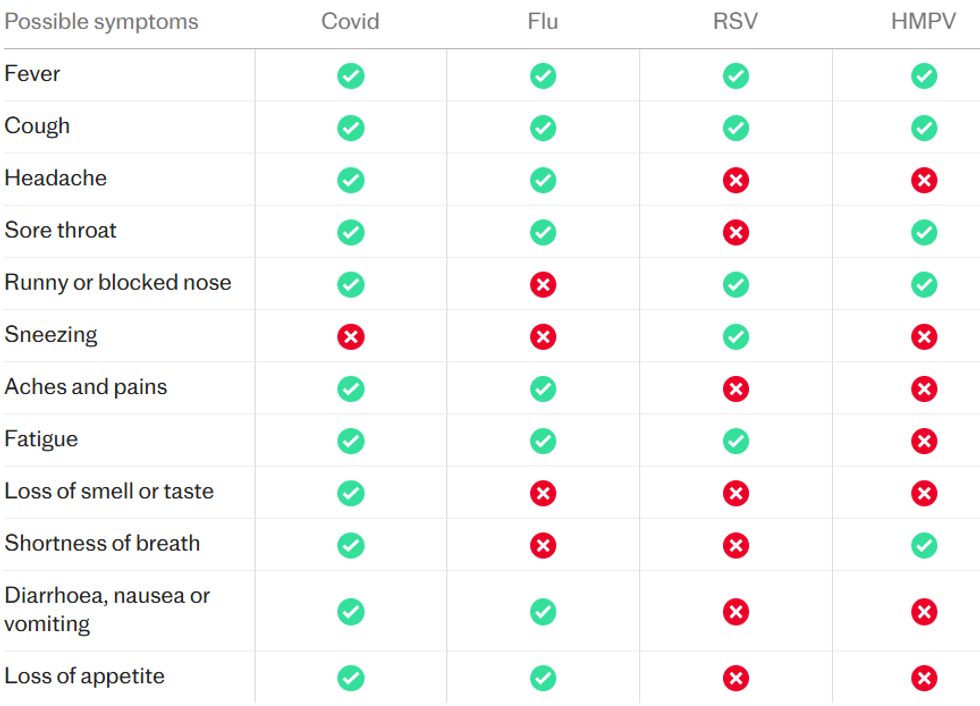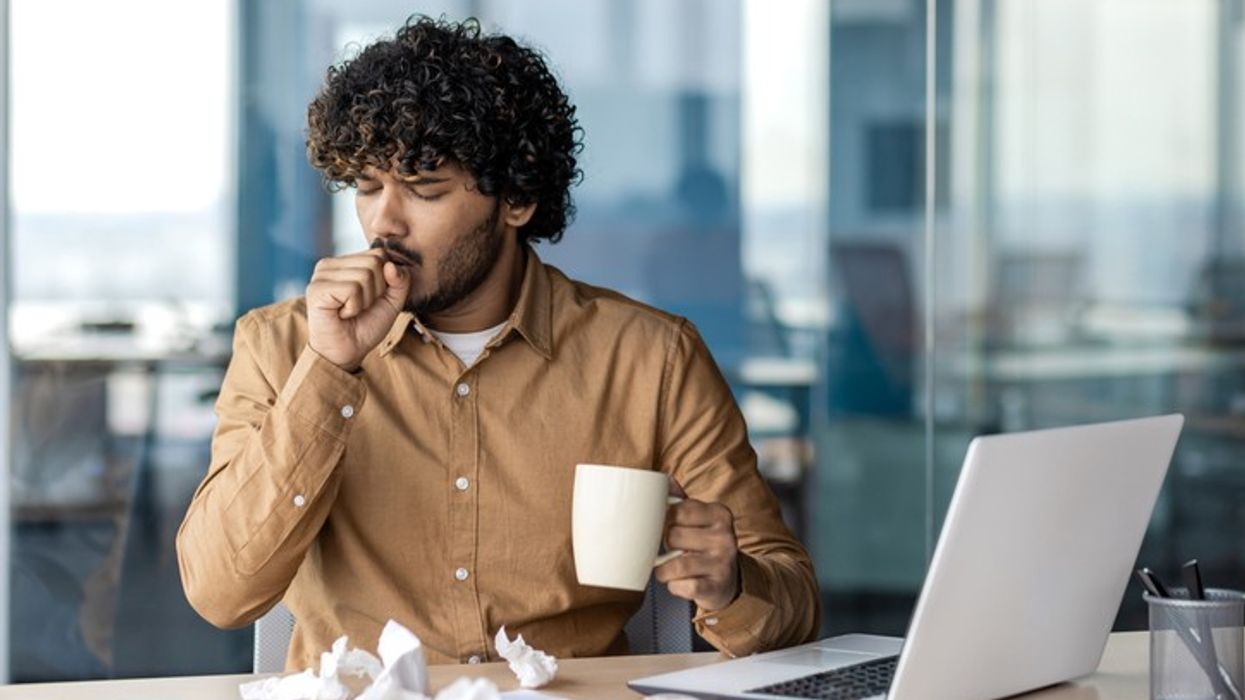Colds and respiratory viruses are usually associated with winter, as colder weather drives people indoors and lowers the body’s natural defences. However, illnesses are still affecting people during the warmer months — and this summer, it could be down to a common virus or a new strain of Covid-19 now being monitored in the UK.
So, what’s behind that runny nose or sore throat, and how can you tell the difference?
New Covid strain under watch in the UK
A new Covid-19 variant, NB.1.8.1, is currently being monitored by health authorities. First detected in China in January, the variant is now being tracked by the World Health Organization due to mutations that may allow it to partially evade immune responses.
Dr Lindsay Broadbent, assistant professor in virology at the University of Surrey, said early data suggests the variant might have a slightly increased ability to bypass antibodies, although it does not appear to cause more severe illness. “People don’t need to be overly concerned,” she said.
According to the latest UK Health Security Agency (UKHSA) data, 5.2 per cent of patients tested by GPs were positive for Covid-19, up from 4.5 per cent the previous week. Since NB.1.8.1 was first identified in the UK in January, 13 cases have been confirmed — 12 of which were reported in April and May. Around 50 positive tests are currently being sequenced weekly to determine the variant.
Dr Gayatri Amirthalingam, deputy director at UKHSA, noted that international data suggests NB.1.8.1 is growing in proportion globally, but there is no indication that it causes more severe illness or that current vaccines are less effective.
Summer colds still spreading
Although winter is typically associated with colds, certain viruses circulate more widely in summer. According to Prof Fidelma Fitzpatrick, head of clinical microbiology at the Royal College of Surgeons in Ireland, viruses such as parainfluenza Type 3 and enteroviruses are more common in warmer months.
Other viruses, including adenoviruses and rhinoviruses — the typical causes of winter colds, can also continue to circulate in summer. “The risk of exposure depends on behaviour, the environment, and how widespread these viruses are at the time,” Dr Broadbent explained.

Summer social activities, such as weddings, festivals, and holidays, increase the risk of virus transmission. People are often in close contact with others from different households and regions, raising the chance of catching something.
Lifestyle factors associated with summer — such as alcohol consumption, irregular sleep, and processed foods — can also weaken the immune system. Additionally, air conditioning may dry out the nasal passages, making it easier for viruses to infect.
It’s unclear whether summer colds are increasing, as the UKHSA does not track all cold-causing viruses. However, data shows a slight drop in parainfluenza cases in the week to 1 June.
Similar symptoms make diagnosis tricky
Both Covid-19 and summer colds typically cause mild symptoms. Prof Fitzpatrick said that most people infected with Covid will have cold-like signs, including a runny nose, sore throat, congestion, tiredness, and headaches.
Those with underlying health conditions may experience more severe symptoms or a longer illness. Unfortunately, symptoms of summer colds are almost identical, making it hard to tell the difference without testing.
Covid-19 tests remain available in pharmacies, starting at around £2. While there are no formal restrictions, public health advice recommends staying at home if you test positive.
How to reduce your risk of infection
There is no guaranteed way to avoid viruses entirely, but good hygiene and healthy habits can reduce the risk.
“Advice for avoiding summer colds is the same as at other times of year,” said Dr Broadbent. She recommends regular handwashing and good respiratory hygiene, including using tissues.
Prof Fitzpatrick advised staying well hydrated, limiting alcohol intake, and sanitising shared surfaces, such as gym equipment and aeroplane trays. Maintaining a strong immune system through sleep, balanced meals, and managing stress can also help.
Taking vitamin D supplements and drinking plenty of fluids may offer additional support. If you catch a cold, it’s best to avoid contact with vulnerable individuals, including older adults and those with lung or heart conditions.
Managing symptoms at home
Most people can recover from both Covid and summer colds at home. Prof Fitzpatrick recommends rest, hydration, and over-the-counter medications such as paracetamol to relieve fever, aches, and headaches.
Decongestants and throat lozenges can ease nasal and throat discomfort. However, antibiotics are not effective for viral infections like Covid or colds.
Medical help should be sought if symptoms worsen or include difficulty breathing, chest pain, or confusion, especially for individuals with existing health issues.
Whether it's a summer cold or a new Covid variant, symptoms are often mild but still unpleasant. Understanding the cause and taking basic precautions — including testing if needed — can help protect yourself and others during the warmer months.





